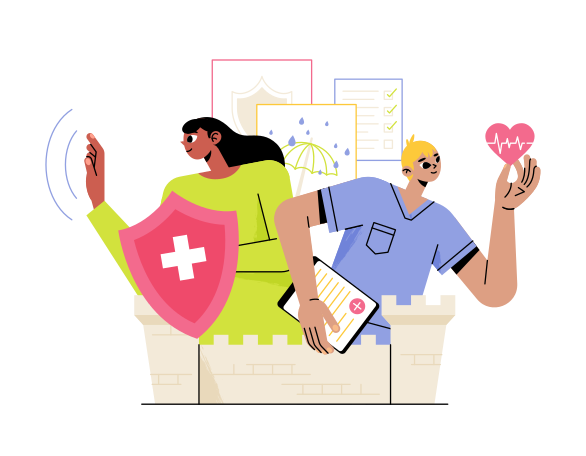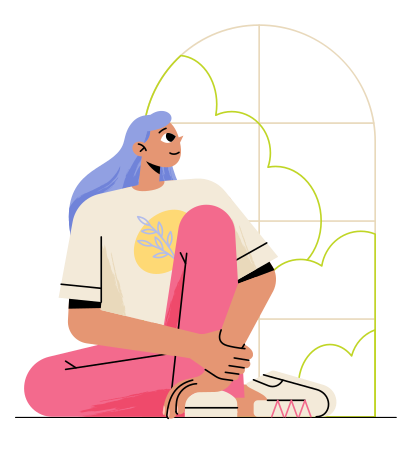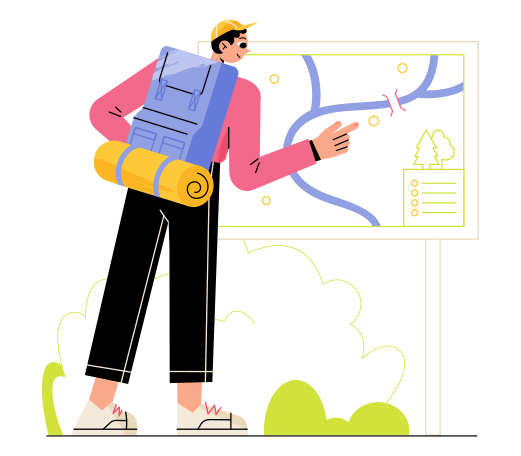🧡 Pre-Order now 🧡

Empathy, defined as the ability to understand and share the feelings of others, allows us to connect with and provide comfort to one another. With the exception of psychopaths, all humans are capable of empathy. But like most traits, empathy occurs on a spectrum, with some people being more empathic than others. People with high levels of empathy are called empaths. There are many triggers for empaths, but by learning what to avoid and how to practice self-care, empaths can protect themselves from emotional burnout.
Pop quiz! Is an empath:
A. someone who is highly attuned to the emotions of others
B. someone with a superpower
C. someone who is vulnerable to burnout
D. all of the above
The answer is D! Empaths are deeply in tune with the emotions of others. They may pick up on environmental cues that other people miss. In fact, empaths are often the first to sense that something is wrong and alert others to the possibility of danger. In addition, empaths are capable of deep connections with the natural world. They use their empathic ability as a type of superpower, frequently serving as healers or spiritual guides within the community. Nelson Mandela, Mahatma Gandhi, and Mother Teresa are all notable empaths.
However, there are many triggers for empaths. Empaths can be easily overwhelmed, overstimulated or exhausted. They are also more vulnerable to manipulation. Because empaths are often sought out for advice or assistance, they can become “emotional garbage dumps” if they don’t set appropriate boundaries with others. Finally, empaths might feel “different” or like they don’t fit in with their peers. But as author and musician Ross Caligiuri notes:
“If you feel like you don’t fit into the world you inherited it is because you were born to help create a new one.”

Dr. Judith Orloff, author of the book The Empath's Survival Guide, likens empaths to “emotional sponges,” absorbing the stress, grief, and joy of the people around them. Dr. Orloff explains that empaths lack the filters that other people have for tuning out stimuli. There is also some evidence that empaths have more reactive mirror neurons. Mirror neurons are brain cells that activate when we witness others have an emotional experience. The reactivity of empath's mirror neurons means there are many triggers for empaths.

As mentioned earlier, being an empath has both pros and cons. Here are some of the positive qualities of empaths:
Empaths also tend to be shy or introverted, often preferring small groups or 1:1 get-togethers versus large crowds. Because of the vast number of triggers for empaths, they are easily overstimulated or overwhelmed. For this reason, empaths require more solitary “down time” replenish.
Do these characteristics sound familiar? Take this empath test.

Due to the prevalence of handheld devices and other technology, we all have access to an inordinate amount of information, including text, videos, and images. In this environment, it behooves anyone to be mindful about how much and what kind of content they consume. Empaths, however, have to be particularly careful how much time they spend reading or watching news or social media. Here are some common triggers for empaths:
Movies and TV shows, in addition to news articles, YouTube videos, and social media reels, are often created with the intent to make viewers feel something. But this can be dangerous for empaths who already feel so much. Although empaths know intellectually that the drama in a movie or TV show is fictional, because of the effect of mirror neurons, the emotional effect is the same as if it were happening in real life. This can lead to overstimulation and fatigue.

Self-care is important for everyone, but empaths are particularly susceptible to burnout. Also called empath shutdown or compassion fatigue, burnout is defined as a state of physical, emotional, and mental exhaustion. It occurs when life's demands exceed a person's capacity to deal with them. Here are some common symptoms of burnout:
Our bodies are remarkably responsive to stress, and burnout can reveal itself in physical, cognitive, and emotional symptoms. Psychologist Susan Albers explains:
Empathy fatigue is a defense mechanism. It’s your body’s way of telling you to pay attention and to take a step back to care for yourself.
If you are experiencing signs of burnout, it’s important not to ignore them! While taking a time-out to replenish may feel selfish, it’s actually the only way to continue the empathic work of helping others. As the saying goes, “you can’t pour from an empty cup.” Here are some things you can do to both prevent and treat burnout:

Being an “emotional sponge” can be exhausting! But being an empath has a lot of positives. Companies large and small increasingly value empathy as a skill that can breed creativity, innovation, and cooperation. Recent research also indicates that empathy is an important leadership skill. In order for empaths to keep making valuable contributions at work and in their communities, they need to avoid triggers for empaths and practice regular self-care. As best-selling author Anita Moorjani says, “Sensitive is the new strong.” So battle on, empathic warrior!
An empathy trigger is a situation or event that causes someone to feel empathy for another person. This can be as simple as seeing someone in a difficult situation or hearing about someone's struggles. Empathy triggers can also be more complex, for example when someone is exposed to a traumatic event.
Empathy triggers help us understand and connect with others. They can also motivate us to help people in need. By understanding what causes someone to feel empathy, we can be more intentional in our interactions and make a positive difference in the world.
There are many zodiac signs that can be empaths, but there are definitely a few that stand out more than others. Cancer, Pisces and Scorpio are all signs known for their empathy and ability to feel the emotions of others. These signs are all compassionate and sensitive, and have a deep understanding of human experience. They are natural healers and often use their gifts to help others through difficult times.
If you are an empath, you will find that you are attracted to people with these signs. This is because you can easily connect with them and feel a deep connection with them. You may also find that you are attracted to people who are going through difficult times, as you have a natural ability to help them heal. Empaths are often compassionate and caring people and make great friends, lovers and confidants.
Empaths are highly sensitive people who are attuned to the emotions, thoughts, and energy of those around them. They often know the subtlest changes in the emotional landscape, and can pick up on the unspoken communication of others. Empaths are often described as "emotionally intelligent" and "in tune with the human experience."
Empaths are often sensitive to:
- The emotions of those around them: Empaths often sense when others are happy, sad, anxious, or angry. They may also feel the emotional energy of a group or crowd.
- The thoughts of others: Empaths often read others' thoughts and intentions, and may even pick up on the thoughts of those around them.
- The energy of others: Empaths often feel the "vibes" or "aura" of those around them. They may feel the positive or negative energy of a person, place, or thing.
- The needs of others: Empaths often know the needs of those around them, and may feel compelled to help meet those needs.
Empaths are often drawn to helping professions, such as counseling, teaching, and healthcare. They may also be drawn to creative pursuits, such as writing, art, and music. Empaths often have a strong connection to nature and animals.
While empaths are highly sensitive and attuned to the needs of others, they must also be careful not to absorb the negativity of those around them. Empaths must find a balance between giving and receiving, and often need time alone to recharge their own batteries.
When an empath is overwhelmed, they can feel like they are drowning in emotions. They may feel constantly bombarded with other people's emotions, and they cannot shut them out. This can lead to empaths feeling exhausted, anxious, and even depressed. If an empath is unable to find ways to cope with his abilities, he may start to withdraw from social interactions and become isolated.
One of the best ways for an empath to cope with their abilities is to find others who understand them. There are many online communities and support groups for empaths that can provide guidance and understanding. Empaths can also learn about energy clearing and protection techniques to help them manage their skills. It is important for empaths to take care of themselves emotionally and physically, as they are more sensitive to stress and can easily be overwhelmed.
